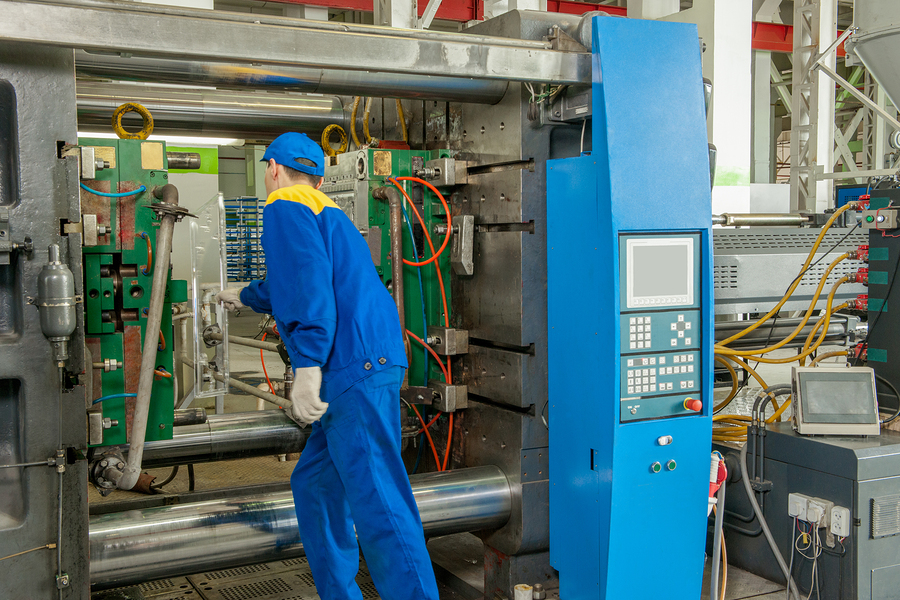Injection molding your product is all about building in layers. Products are molded from the inside out, starting with the innermost pieces; new layers of product pieces are molded on top to create the final whole. Modern products are almost never a single continuous piece or material. Even items made entirely from injection molding usually include different types of plastics and polymers serving different functions for the final product. However, one of the most important differences in injection molding production is whether you’re using insert molding or over-molding.
Understanding the difference between insert molding and over-molding can help a company make the right production choice. Which is right for your product? Let’s take a closer look.
Insert Molding
Insert molding starts with the insert, an item that is not plastic around which plastic parts will be formed. This occurs when your product requires, e.g., a metal screw or fastener which will hold molded plastic parts together when the final product is used. But the screw itself will be hidden inside the final molded product. Rather than physically twisting the screw into the plastic to continue, the new parts are injection-molded around the insert. This saves time while maintaining the structural value.
Let’s look at another example of insert molding; a product with a steel core providing strength, weight, and structural support to the product around which plastic is molded. The insert may not be completely covered; for example, a hammer where the entire handle may be molded but the head remains bare.
Over-Molding
Over-molding is a very similar process, only every part of your product is produced through injection molding. As we described earlier, injection molding occurs from the inside out; forming the center-most pieces and allowing them to harden before molding additional outward pieces over them. This is known as over-molding when a new layer of plastic or a new plastic or polymer material is molded over an originally molded part.
Over-molding is often used when a part is entirely molded, but of different materials. A mop handle, for example, consists of a hard plastic body. This may then be coated in a soft textured grip and a separate end-cap that unscrews. First, the plastic body is molded; next, the end-cap and the soft handle of a different polymer is over-molded on top of it.
Which Process Does Your Product Need?
If your product has non-plastic parts which will need to be included in the production process, then you will want to arrange for insert molding manufacturing. In this process, your inserts are added to the machine so that your products can be shaped around them.
For products requiring multiple types of plastic or polymer or molded parts that layer or screw into one another, over-molding is your answer.
Naturally, many modern products are designed with both non-plastic inserts and multiple molded parts and materials in the same production line. This is why injection molding production often involves multiple machines; these can handle the demands of both processes in a single manufacturing chain. For simple products, you may choose one or the other. For more complex products, both may be necessary.
Whether you need insert molding, over-molding, or both in your production line, Proto Plastics is ready to bring your design into reality. Insert molding and over-molding are highly effective at reducing the need for assembly and labor by skipping over the idea of assembly at all. Like the screw that is molded into position rather than twisted into a grooved slot, assembly can be made completely unnecessary by forming the parts over each other instead. For more information about building the production line your product needs, contact us today! We’ll be glad to consult on your product design and production options to build it layer by layer in our injection molding presses.

